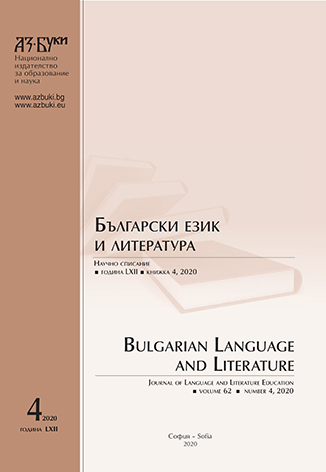Ценности и поведения в няколко новели от "Декамерон" на Джовани Бокачо
Values and Behaviour In Several Novels of Giovanni Boccaccio’s Decameron
Author(s): Angel AngelovSubject(s): Social Sciences, Language and Literature Studies, Literary Texts, Education, Poetry, Anthology, Studies of Literature, School education, Vocational Education, Adult Education, Philology, Inclusive Education / Inclusion
Published by: Национално издателство за образование и наука „Аз-буки“
Keywords: Il Decameron; XIV century; plague epidemics in Europe; famine; insecurity; aristocratic and bourgeois values; behaviour; laws and women; human nature; love; homosexuality; promiscuity
Summary/Abstract: The aim of the text is to historically contextualize Decameron and to analyse the motives for certain behaviour of the characters in several of the novels. The author tries to outline some more general social values, which determine the personal behaviour. Decameron is referred to such events as the famine in 1346 – 1347; it fosters the plague in 1348, and to the changing socio-psychological situation from the end of the 1340-ies in Florence. An answer is sought to a question, topical for our contemporary society as well: what is the sense of security of the inhabitants in the town-republic in the 1340-ies and the beginning of the 1350-ies? The irresistible vitality in Decameron, most frequently expressed in intimacy of the bodies, is considered an effect of the sense of insecurity, which reigns both minds and hearts at the time of the plague pandemic. The value of life is enhanced and the experience of love makes this value tangible. A reference is made to the fabliau from the 13th c. and to The Romance of the Rose. In Decameron is present, although in an idealized form, the actual background of the republican government of Florence.
Journal: Български език и литература
- Issue Year: 62/2020
- Issue No: 4
- Page Range: 343 -356
- Page Count: 14
- Language: Bulgarian
- Content File-PDF

